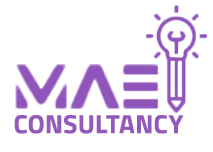Feasibility Study
A feasibility study is an essential assessment conducted before embarking on a project or business venture.
What Is a Feasibility Study?
A feasibility study is an essential assessment conducted before embarking on a project or business venture. Its purpose is to determine whether the proposed project or plan is practical, viable, and likely to succeed. By analyzing various factors, a feasibility study helps decision-makers understand the potential benefits, risks, and constraints associated with the project.

Key Aspects Considered in a Feasibility Study:
01. Technical Feasibility:
Evaluates whether the proposed project can be technically executed. Questions to address include:
- Do we have the necessary technology and expertise?
- Can we create or acquire the required tools and resources?
02. Economic Feasibility:
Assesses the financial viability of the project. Key considerations:
- Cost estimation (initial investment, operational costs, maintenance).
- Expected return on investment (ROI).
- Profitability analysis.
03. Legal Feasibility:
Examines legal and regulatory aspects:
- Are there any legal barriers or constraints?
- Compliance with local, national, and international laws.
04. Operational Feasibility:
Focuses on the practical implementation within the organization:
- Workflow assessment.
- Resource planning (people, equipment, facilities).
- Scalability considerations.
05. Time Feasibility:
Determines the project timeline:
- Project duration.
- Critical milestones.
- Time-to-market.
Importance of Feasibility Studies
- Informed Decision-Making:
- Feasibility studies provide a comprehensive view of the project’s potential, allowing stakeholders to make informed choices.
- They guide project managers toward the right path by highlighting challenges and opportunities.
- Risk Mitigation:
- Identifies potential risks and constraints early on.
- Helps develop contingency plans to address unforeseen issues.
- Resource Allocation:
- Ensures efficient allocation of resources (financial, human, technological).
- Prevents wastage on unviable projects.
Components of a Feasibility Study Report
- Executive Summary:
- Concise overview of findings and recommendations.
- Captures the essence of the study.
- Description of Product/Service:
- Details about the proposed offering.
- Features, benefits, and uniqueness.
- Technology Considerations:
- Assessment of technical feasibility.
- Existing or required technology.
- Market Analysis:
- Understanding the target market.
- Market size, trends, and competition.
- Marketing Strategy:
- How the product/service will be positioned and promoted.
- Pricing, distribution channels, and branding.
- Organization/Staffing:
- Organizational structure.
- Staffing requirements.
- Financial Projections:
- Cost estimates.
- Revenue forecasts.
- ROI calculations.
Types of Feasibility Studies
- Pre-Feasibility Study:
- Conducted before the detailed feasibility study.
- Initial assessment of project viability.
- Operational Feasibility Study:
- Focuses on implementation within the organization.
- Workflow analysis, resource planning.
- Market Feasibility Study:
- Evaluates market demand and potential customer base.
Conclusion
A well-executed feasibility study provides a roadmap for successful project execution. It ensures alignment with organizational goals and minimizes risks. Remember, feasibility studies are not just about asking “Can we do it?” but also “Should we do it?”
Our Services
Let’s Talk
emergency
